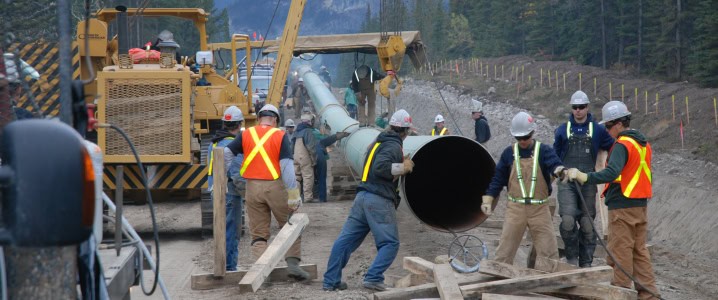
Canada’s federal government instructed on Friday the National Energy Board (NEB) to review the Trans Mountain Pipeline Expansion project again, this time also taking into account the impact of the expected higher oil tanker traffic off the coast of British Columbia.
Last month, a Federal Court of Appeal quashed the federal government’s approval of the Trans Mountain expansion project, saying that the NEB’s review of the project was fraught with flaws that made it unsuitable as a basis for the government’s approval. The court ruled that the NEB failed to adequately consider how increased tanker traffic off British Columbia’s coasts would affect the environment and First Nations people in the region.
“Today, we have instructed the National Energy Board (NEB) to reconsider its recommendations, taking into account the effects of project-related marine shipping. The NEB will be required to complete a thorough and prompt review and deliver its report within 22 weeks,” Canada’s Minister of Natural Resources, Amarjeet Sohi, said in a statement on Friday.
The government will present to the NEB recent government actions to protect the southern resident killer whale and to implement the Oceans Protection Plan, Sohi said.
“The Trans Mountain Pipeline Expansion project (TMX) is an investment in Canada’s future. The Government remains committed to a clear and reliable path forward for the project,” the minister noted.
The Trans Mountain expansion has become one of the most controversial pipeline projects in North America as it pitted two provinces—Alberta and British Columbia—against each other.
Alberta’s heavy oil producers need more pipeline capacity as their production grows, but pipeline capacity has stayed the same. British Columbia’s NDP government, which came into office last year, however, is against any new oil pipelines, although it doesn’t mind all the crude it currently gets from the existing pipeline.
The fierce opposition in British Columbia has forced Kinder Morgan to reconsider its commitment to expand the Trans Mountain pipeline, and to sell the project to the Canadian government.


